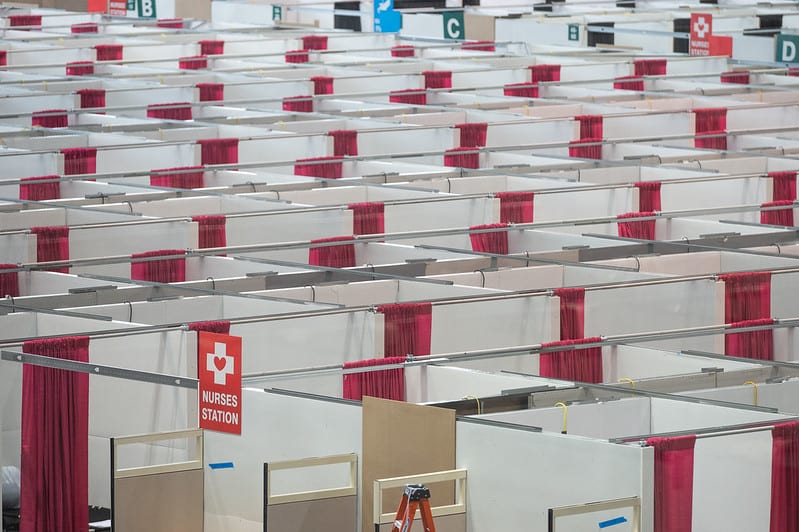
With COVID-19 cases expected to surge this month, state officials are concerned that the Massachusetts health care system could become overwhelmed with more patients than hospitals have the capacity to treat.
State Secretary of Health and Human Services Marylou Sudders released guidelines for health professionals to make critical decisions about who receives care and who doesn’t in an April 7 memo titled “Crisis Standards of Care Planning Guidance for the COVID-19 Pandemic.”
In the document, a panel of 16 medical professionals call for a scoring system in which those with the lowest scores have the highest priority for treatment. But among the factors giving patients a higher score, and therefore, a lower priority for medical intervention are health conditions common to black, Latino and Asian people including diabetes, hypertension and obesity.
The inclusion of those conditions in the crucial care standards prompted black and Latino legislators to write a public letter calling for Gov. Charlie Baker to pause the care standards and factor in race.
“It is apparent that some severe diseases and conditions may warrant a standard of care protocol, however, utilizing points for conditions that we already know are rampant in low-income communities due to historic health disparities is unconscionable,” said Rep. Carlos González, chairman of the Massachusetts Black and Latino Legislative Caucus in the letter.
The letter also calls on the Baker administration to allocate more resources for safety net hospitals, provide for more testing in communities of color where many of our low-wage essential workers reside and establish a diversity advisory task force to “provide a health disparity lens to support government and hospitals as they update their protocols and guidelines.”
The legislators aren’t alone in voicing concern about the care standards. Dozens of doctors, nurses and other health professionals signed a petition calling on the Baker administration to involve community stakeholders in developing and approving new crisis standards that take into account political and social determinants of health to “assure truly equitable allocation of resources.”
The state standards were set to prioritize individuals who have the greatest chance of living the longest after treatment, according to the standards the state’s panel outlined.
“To the extent resources become scarce, maximizing benefit will involve attempting to maximize life years saved, not only attempting to save the most lives,” the memo reads.

Secretary of Health and Human Services Marylou Sudders
speaks while Gov. Charlie Baker looks on during an April 10 media briefing.
Joshua Qualls/Governor’s Press Office
The panel of 16 health professionals, none of whom were African American, made clear the standards outlined were not meant to discriminate on the basis of race or other similar factors.
“Characteristics that have no bearing on the likelihood or magnitude of benefit including, but not limited to, race, disability, gender, sexual orientation, gender identity, ethnicity, ability to pay, socioeconomic status, perceived social worth, perceived quality of life, immigration status, incarceration status, homelessness or past or future use of resources are irrelevant and not to be considered by healthcare providers making allocation decisions,” the panel members wrote.
Yet the dissenting health care professionals, who by Friday had garnered more than 300 signatures on their petition opposing the standards, said the standards would disproportionately affect people of color, immigrants and low-income people.
“These Crisis Standards of Care will result in the withdrawal of life-saving care– including mechanical ventilation– from a disproportionate number of indigenous people, Black people, Latinx people, other communities of color, elders, immigrants, asylees, refugees, and those who are undocumented, uninsured, incarcerated, homeless, experiencing poverty, or living with disability,” the petition reads.
The organizers of the petition had not yet received a response from the Baker administration Monday morning.







